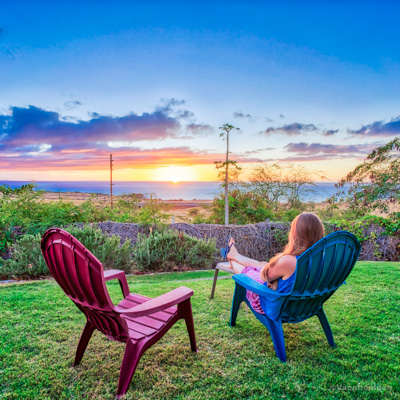Best Places to Go for an Anniversary Trip
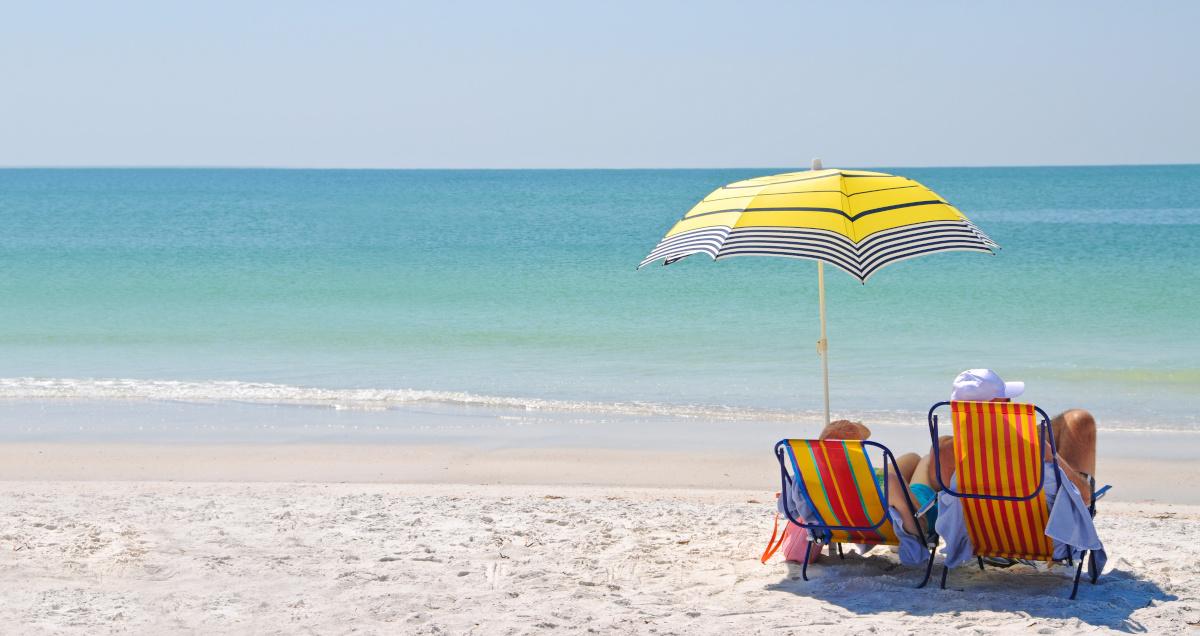
Searching for the best places to visit for your anniversary? Well, you are in the right place! An anniversary should feel like more than just another holiday since it’s a celebration, memory in the making. Over the 25 years of our marriage, Chris and I have sought out destinations where romance, relaxation, and adventure blend seamlessly. This is exactly why I decided to share my anniversary experiences in Virginia so that you can use my guide as an inspiration to plan your own road trip.
If you base yourself in one of these hidden gems for a few days or as a local like we did, you can day trip to all the places around you, or go on a longer road trip. From fairytale landscapes and timeless ruins to serene beaches and awesome drives, here are some unforgettable picks I hope you'll love for your next anniversary getaway.
- My Favorite Places to Visit for Anniversary in the U.S.
- - #1. Jacksonville, Florida - #2. Las Vegas - #3. Walpole, New Hampshire - #4. Lake Havasu City - #5. Oklahoma City - #6. New York City - #7. Breckenridge, Colorado - #8. Eatwith for Foodies
- Best Romantic Anniversary Vacation Ideas Abroad
- - #9. Verve Rally - #10. Queenstown, New Zealand - #11. Scottish Vacation - #12. Shop Hop, Buenos Aires - #13. Toronto - #14. Loen Skylift, Norway
- Best Anniversary Mindfulness Retreats
Best Places to Visit for Anniversary in the U.S.
Our anniversaries have been some of the best trips we've taken in the U.S., whether we had time for just a quick day trip or a relaxing weekend getaways. Here are my favorites and I hope you enjoy them too.
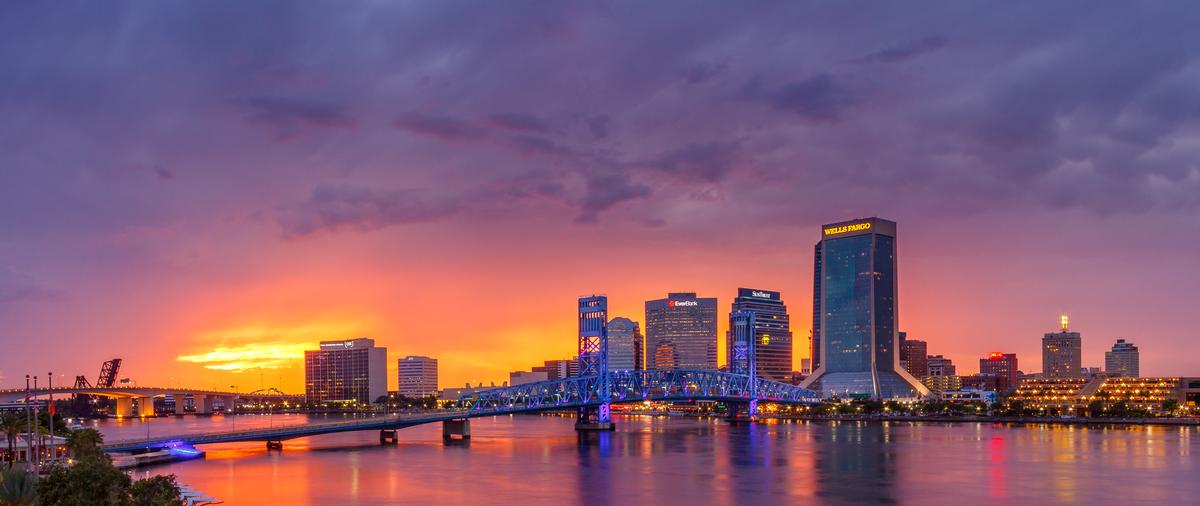
Jacksonville, Florida
Just a short drive east of downtown, the city barrier islands offer some of the most unspoiled coastline I've ever visited in northeast Florida.
In fact, for our anniversary, this city turned out to be the perfect mix of coastal beauty, city buzz, and hidden romantic spots (we flew in from Austin) but you can drive 2 hours from Orlando. Since there is so much to take in, we decided to join a guided tour with a local guide on our first visit which was a great idea.
It’s a city that stretches out along the St. Johns River and the Atlantic Ocean, giving you the best of both worlds: lively neighborhoods with arts, dining, and nightlife, and wide sandy beaches just minutes away.
We enjoyed our morning walks on Neptune Beach, then visited the Cummer Museum of Art & Gardens before checking into Margaritaville Jacksonville Beach for two nights where I loved waking up with views of the beach (of course!).
We also enjoyed the Riverside Arts Market and the walking trails in Timucuan Preserve.
- Location: In northeastern Florida along the St. Johns River, near the Atlantic coast and south of the Georgia border
- Drive Time from Orlando: ~2.5 hours north
- Vibe: Relaxed coastal city with a quiet spark
- Best Time to Visit: March–May or September, early November for breezy days and fewer crowds
- Location: In western Norway in the village of Loen, rising from the Nordfjord to the top of Mount Hoven in the Vestland region
- Best Airport: Ålesund (AES) or Bergen (BGO)
- Cost: Round-trip skylift ~NOK 600 (~$55 USD) or consider a tour
What I loved best:
Brunch at Secret Garden Café was a standout for me - The shrimp were tender and smoky, the grits creamy and rich, and everything smelled like garlic and bay leaf and sunshine through a window. We ate slowly, enjoying our time together.
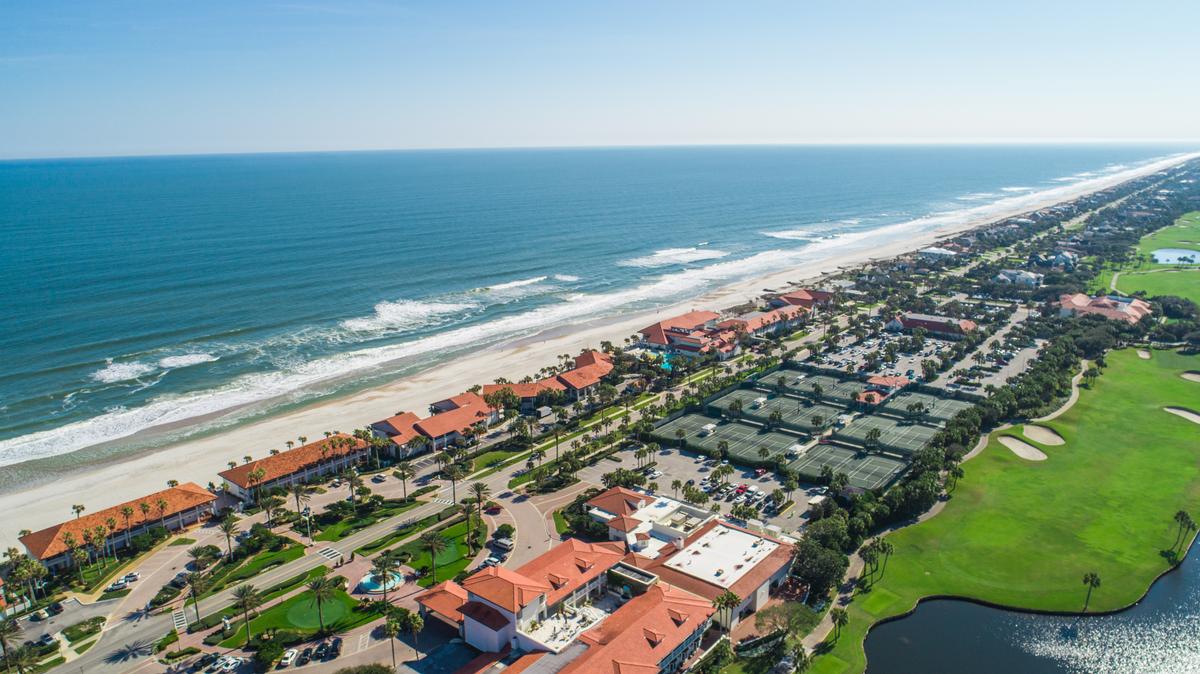
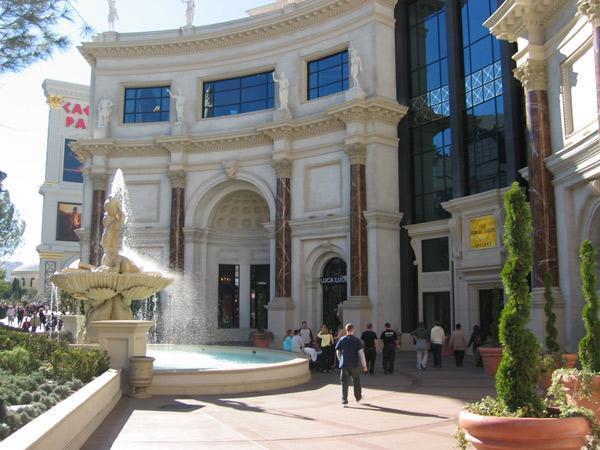
Las Vegas
We absolutely love Las Vegas, and have been many times. This was easily one my coolest anniversary places to visit because it offers heaps of amazing things to do. You'll find world-class dining, big-name entertainment, and stunning resorts. In addition, being based here makes it easy for us to access desert landscapes nearby.
Chances are that unless you are driving in from a neighboring state like California, you will land at Las Vegas airport so I recommend a two day stay in Las Vegas first to get to know this unique city. I instantly thought our journey was worth it!
One of the most amazing gems we discovered first in "Sin City" was the Neon Museum near Downtown and walking through the glowing collection of vintage casino and motel signs felt unusual, exciting, and completely magical.
For breakfast, we made our way to EAT, close to Fremont Street, and it was the perfect start to my day with fresh, affordable food in the relaxed atmosphere which made it one of the coolest breakfast spots I’ve ever been to.
The Mob Museum right after also near Fremont Street turned out to be a very unique place too, with immersive exhibits and dramatic stories of organized crime that made it unforgettable (but I thought $34.95 General admission was expensive).
Another must-see spot tucked right inside Circus Circus, the Adventuredome ($25) is packed with roller coasters, carnival-style games, bumper cars, and even a mini golf course.
Further down the Strip, Bellagio Fountains are not to be missed with a new dancing water show starting every 15-30 minutes! b
Check availability or prices at the Venetian where we had a cool four day stay with great Italian-inspired dining, 5-star Caesars Palace (my photo is below) or the Bellagio, another favorite of mine because of the dancing fountain show every 15-30 minute throughout the day. b
What I loved best:
Our suite at the Venetian for four days had incredible views of the Strip, especially at night. I found it super convenient to take the elevator down to the spa level and treat myself to a 60-minute massage, my personal highlight.
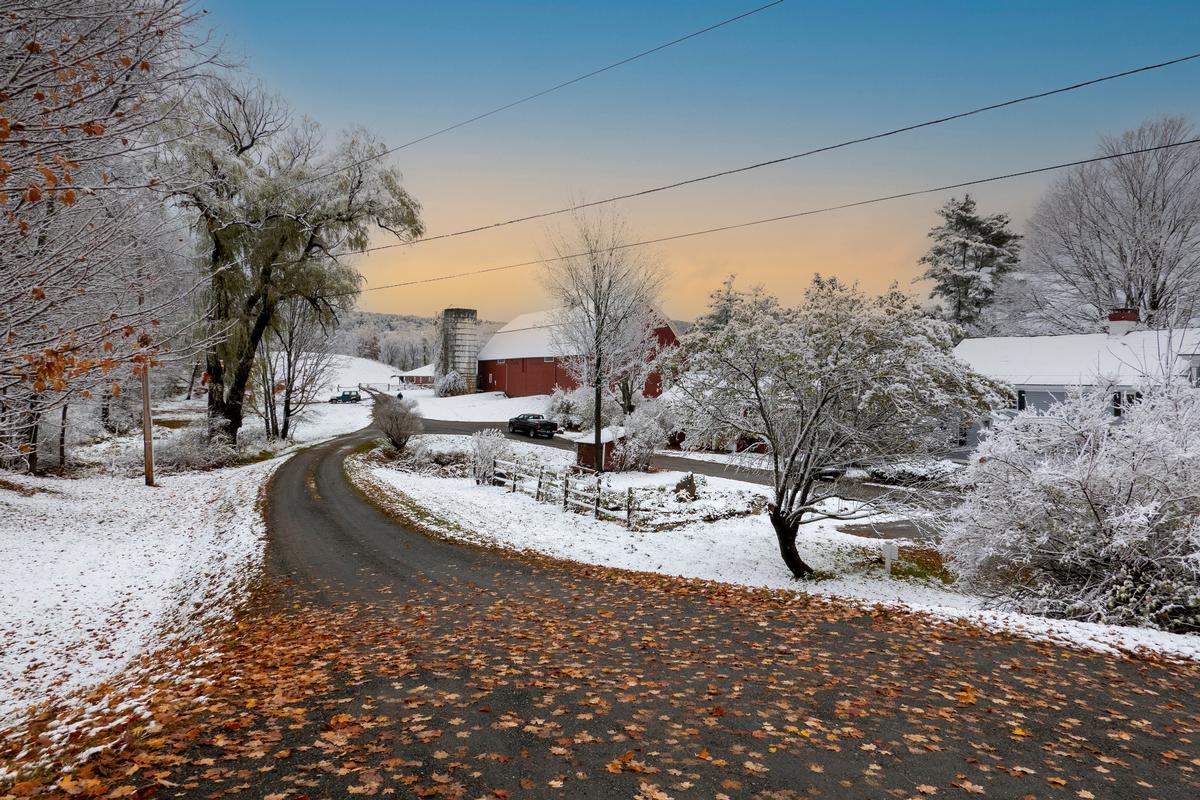
Walpole, New Hampshire
Fall in this small New England town was a dream for our anniversary when we lived on the East Coast. In fact, this quickly became one of my favorite small towns to visit in late November because it feels like stepping straight into a New England postcard which was the perfect romantic setting!
First, I also loved discovering that fall brought the Walpole Fall Artisans Tour, orchard festivals in the surrounding countryside, and lively harvest events at nearby farms.
We filled seven bright days with scenic drives along the Connecticut River Byway, hikes up Fall Mountain, quiet walks through the historic village green, and doughnuts from farm stands dotting the countryside.
Don't skip a slow a walk through Alyson’s Orchard and pick apples together. It's very romantic in the fall!
What I loved best:
I admired Walpole’s Colonial-era architecture, its lovingly preserved main street, and Connecticut River Valley views that completely won me over.
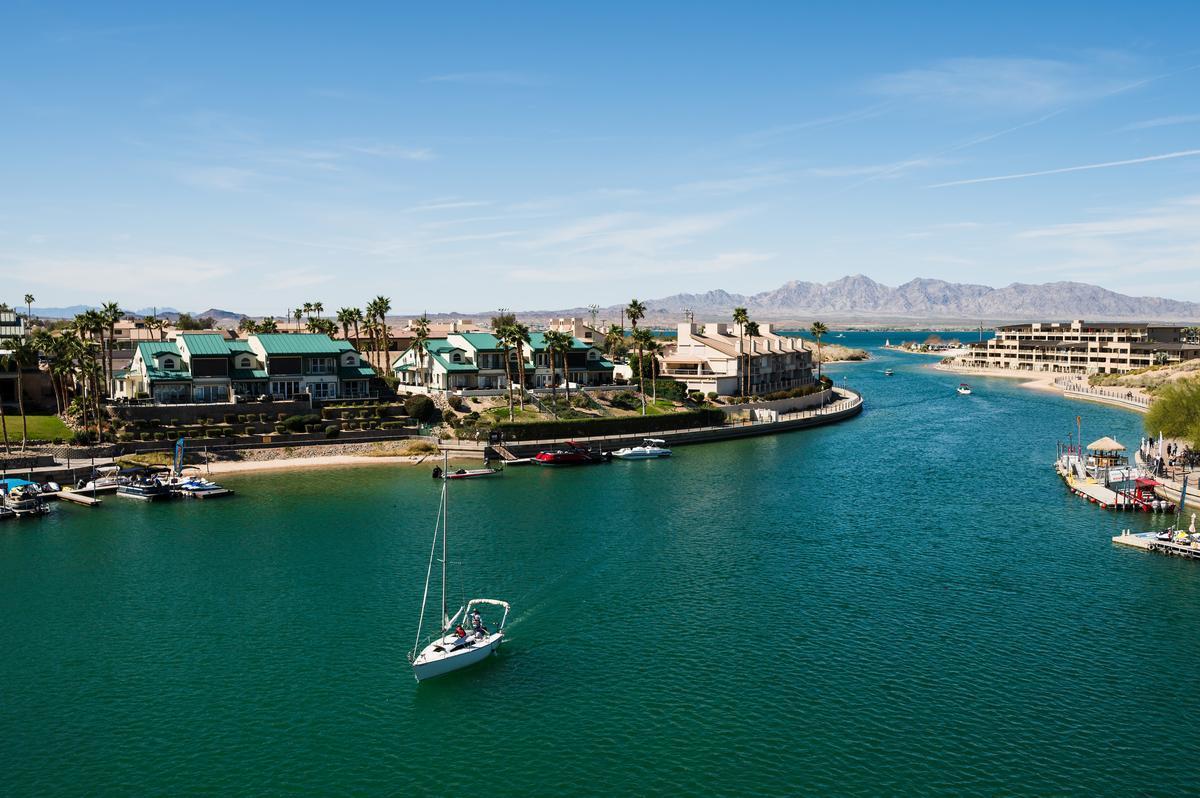
Lake Havasu City, Arizona
This is one of my favorite vacation ideas for our anniversary because it offers that perfect mix of sunshine, open space, and easygoing desert energy.
I especially adored visiting this quirky desert oasis in October, when the days were still warm and sunny, the nights cooled off just enough to stroll along the water. In addition, seasonal boat parades and Halloween-themed events along the shoreline gave the whole city a festive, slightly playful vibe. I also loved the way the annual London Bridge Days brought parades, fairs, and a touch of old-world charm right to the Arizona desert.
Local tip: If you don't have a whole weekend to celebrate your anniversary, you can also day trip here from Phoenix, just get an early start before the sun gets too strong!
What I loved best:
Staying at the historic London Bridge Resort for two nights was my personal highlight. I loved its unique setting right at the foot of the bridge, sipping their signature Lake Havasu Sunset cocktail by the pool, and learning about how the bridge was painstakingly transported stone by stone from England in the late 1960s—a surreal slice of history in the middle of Arizona’s desert.
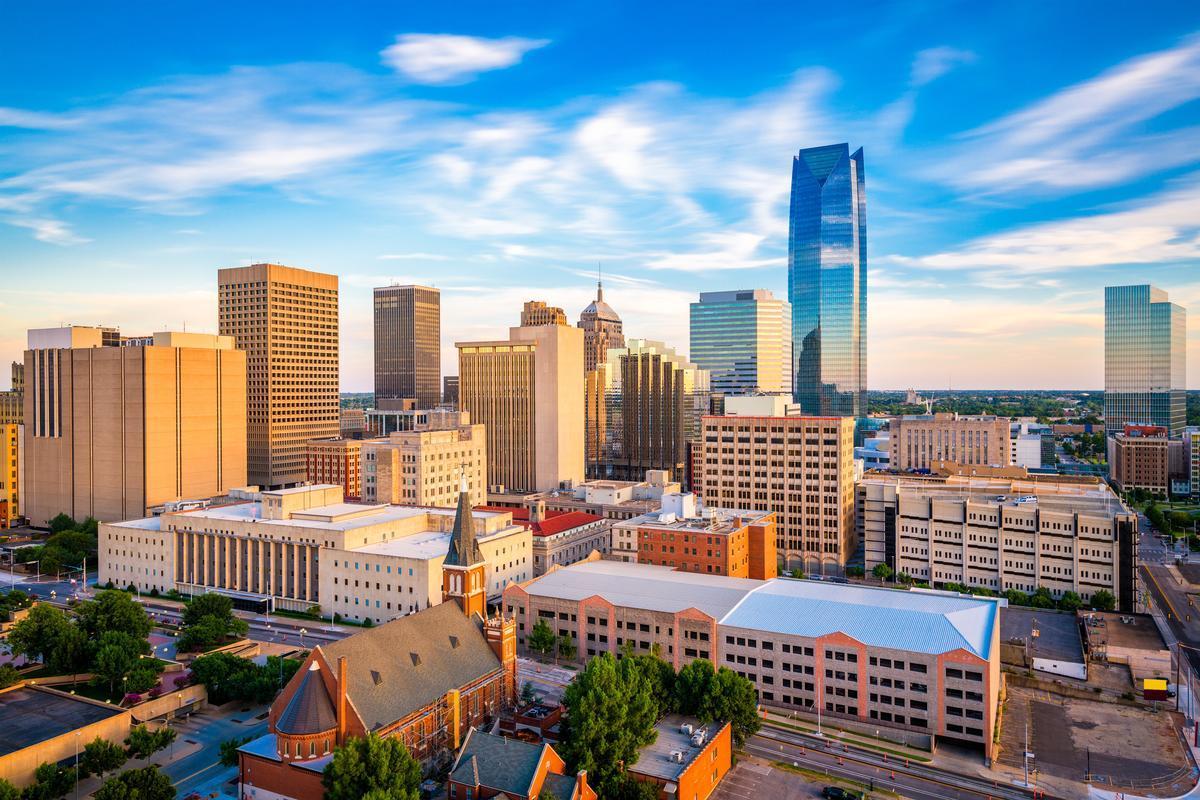
Oklahoma City
This is one of my favorite cities to visit for anniversary because it offers a bit of everything: diverse neighborhoods, art, and fantastic food.
We weren't in a hurry so Chris and I drove about 6 hours north from Austin TX. When we arrived in "The Big Friendly", we stopped for a late lunch at Paseo Grill. I ordered the filet and deviled eggs. The steak was buttery and seared to perfection.
Afterwards we explored the Paseo Arts District where we admired unique murals, a hidden garden, cozy courtyards and art galleries. I stopped in a shop with one-of-a-kind pottery and textured canvases.
Later, one of our favorite stops was the American Banjo Museum ($8) which felt like walking through America’s musical heartbeat.
Next day, explored the powerful exhibits at the Oklahoma City National Memorial, walked along the Oklahoma River trails, admired the striking architecture of the Civic Center and Scissortail Park, and got a taste of cowboy culture at the National Cowboy & Western Heritage Museum.
Later, we ended the night where you’re supposed to: Edna’s. It was loud and easy and alive.
What I loved best:
After checking into our base for the 2-day weekend, Hyatt Place Oklahoma City / Bricktown, we headed to Mickey Mantel's, just steps from the canal. There, I had the Chilean sea bass, crisp on the outside, soft as clouds inside, plated with garlic mashed potatoes and grilled asparagus. I have to warn you, though, that parking can be a challenge!
A downside? The summer heat pressed down hard in the afternoons. I found myself darting between shady spots downtown, wishing for cooler air sooner in the day.
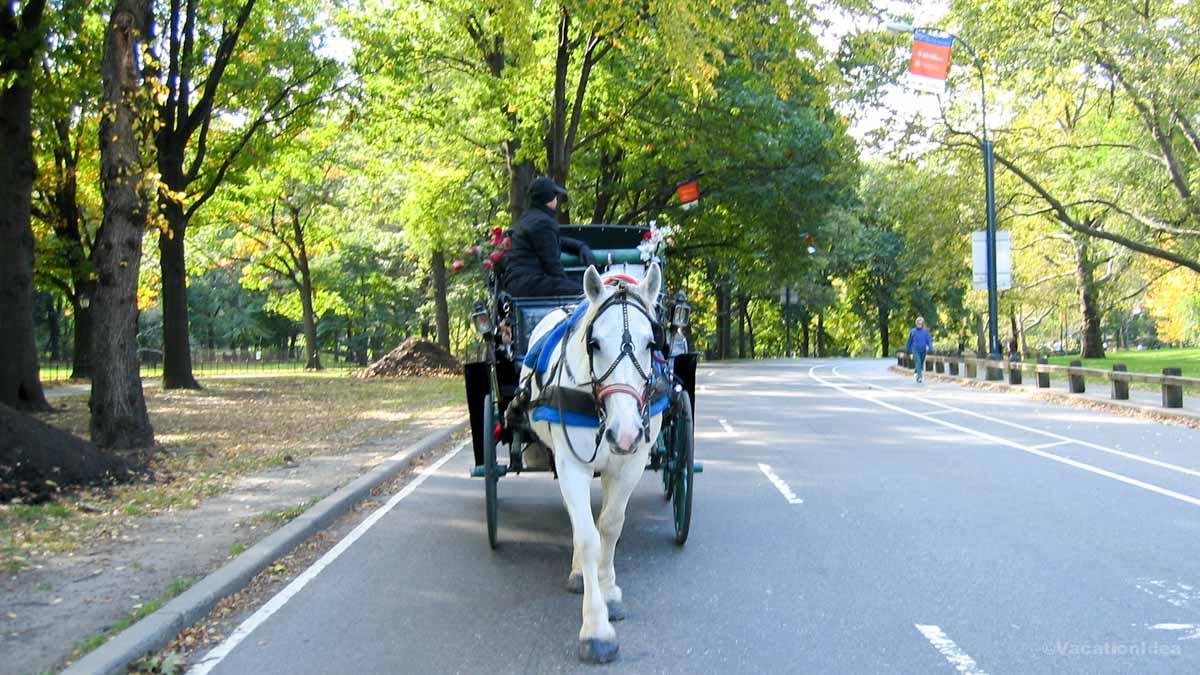
New York City Anniversary Carriage Ride in Spring
New York City is the perfect pick when I want an anniversary that feels exciting. We lived in NYC for ten years and one year we decided to celebrate our anniversary with a carriage ride through Central Park, which quickly became my favorite romantic thing to do.
You just hop in near the park entrance, wrap yourself in a light blanket if there’s still a breeze, and let the driver guide you past blooming magnolias, willow trees, and sparkling ponds.
I loved passing under the trees, sharing the path with bikers and walkers (there are usually no cars once your horse enters the park). You can see the New York skyline all around you and have a quiet chat!
You can spend the night at the Plaza hotel or somewhere near Central Park so that you don't have to walk too far.
What I loved best:
We rented a row boat after (something that had been on my bucket list for a while!) which was my personal highlight.

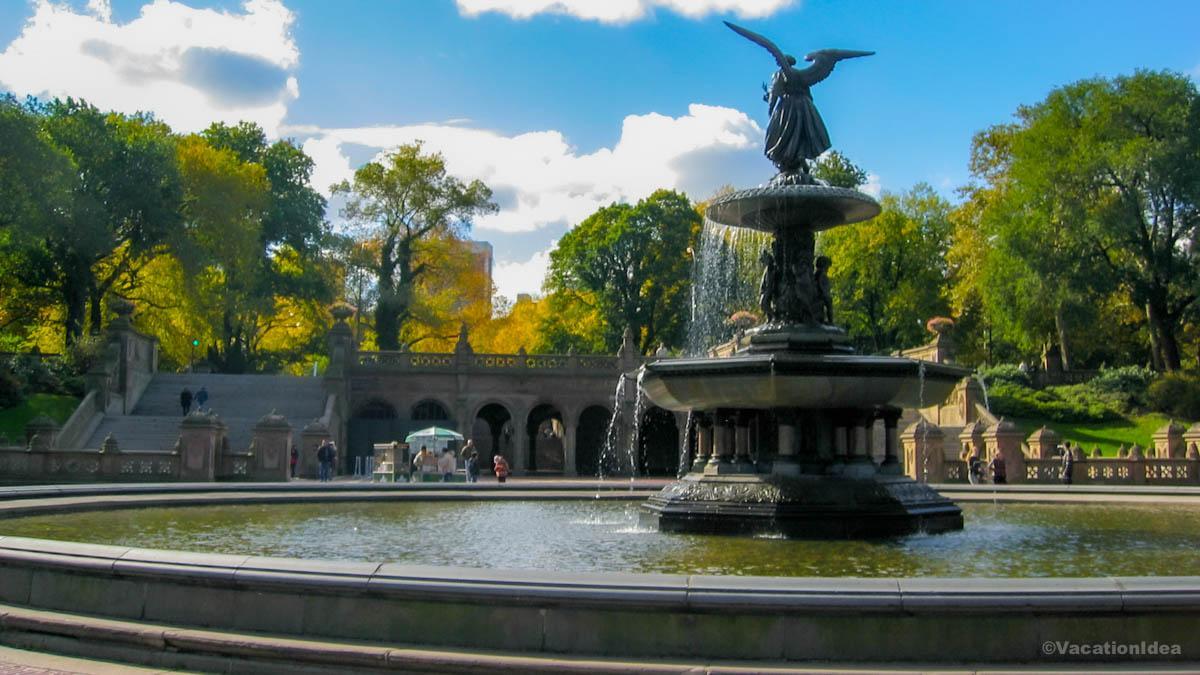
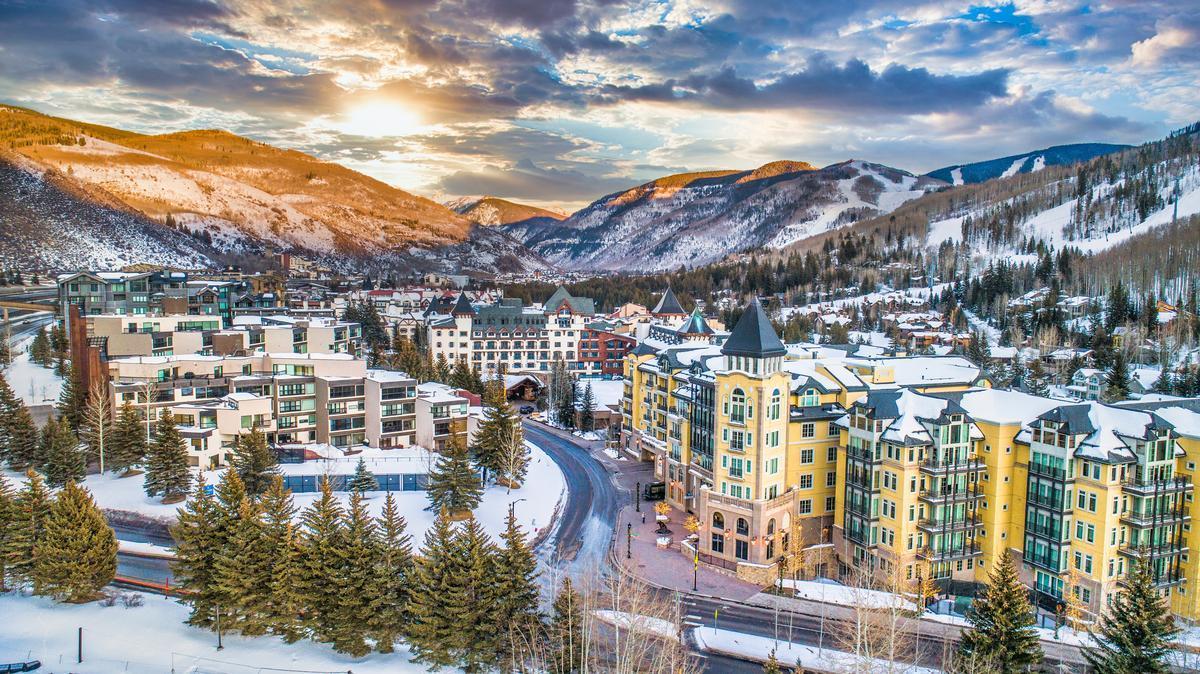
Breckenridge, Colorado
This is one of my favorite cold-weather anniversary destinations and one of my favorite places to visit in Colorado! To me, Breckenridge feels tailor-made for romance which gave me an idea for our anniversary trip this month.
After checking into Marriott's Mountain Valley Lodge for two romantic days, we took the gondola up the mountain, then we looked for Isak Heartstone the Troll (Breckenridge’s whimsical wooden sculpture in the woods) which we didn't find but that's ok.
What I loved best:
Next day breakfast at Columbine Café with fried eggs and housemade toast was my personal highlight. It smelled like sage and maple, and the potatoes were crisp and caramelized. We lingered over mugs of strong coffee.

Eatwith: At Home Around the World
Ready for an anniversary trip where food feels like an adventure in itself? Eatwith wasn’t a restaurant. It was an open door. A seat at a local’s table, where the best flavors came with stories, and dessert always came with laughter.
You don't have to travel to Florence either. Eatwith offers hosts all around the world so chances are you can easily plan a local, affordable anniversary experience.
What I loved best:
Delicious flavors close to home, without having to do extensive travel planning was my personal highlight.
Best Romantic Anniversary Vacation Ideas Abroad
For us, celebrating an anniversary is the best excuse to treat ourselves to a once-in-a-lifetime trip, and, yes, I love tropical islands and beaches, but there were other cool trips we've enjoyed that I'm sharing with you today.
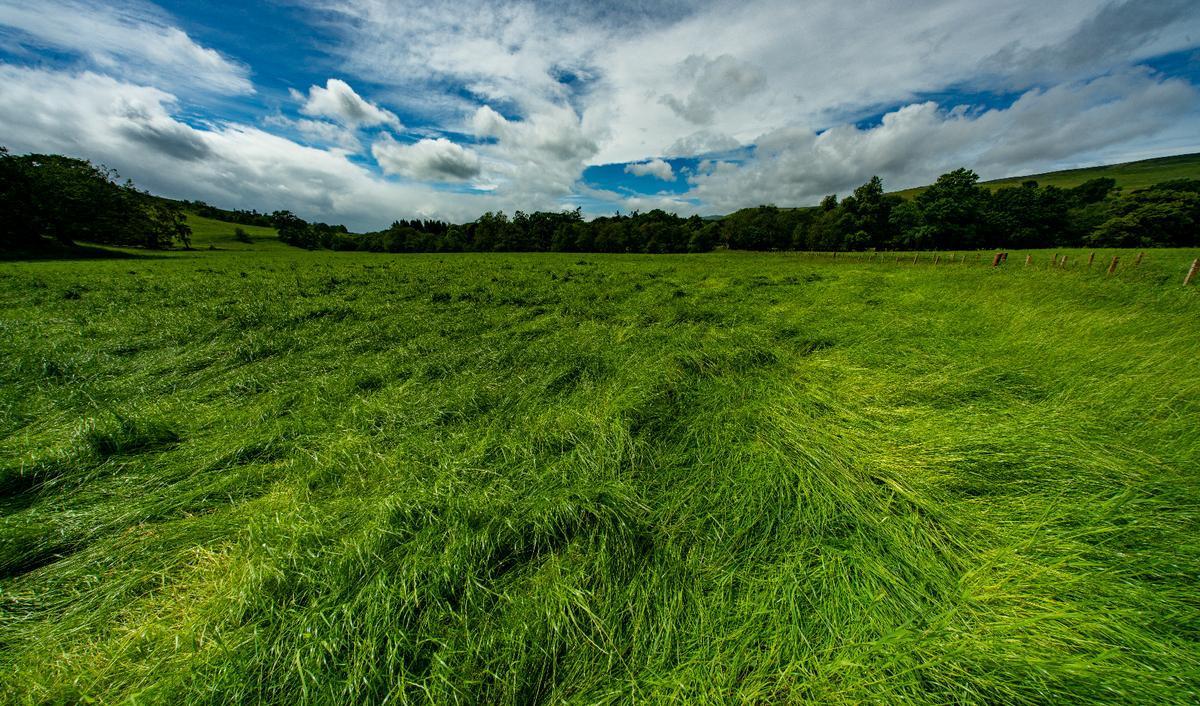
Verve Rally, Europe
Ready for an anniversary trip that feels like it belongs in a movie? I also wanted to include a trip that I haven't done myself but have been planning on it. I think you will love it if you can make it happen. Verve Rally is about seeing Europe’s most iconic roads from behind the wheel of a dream car, with just enough glamour to make every pit stop feel like a film set.
This truly is one of a kind anniversary journey that I've been dreaming about for years!
What I loved best:
Visiting many towns in a short time is what I like best.
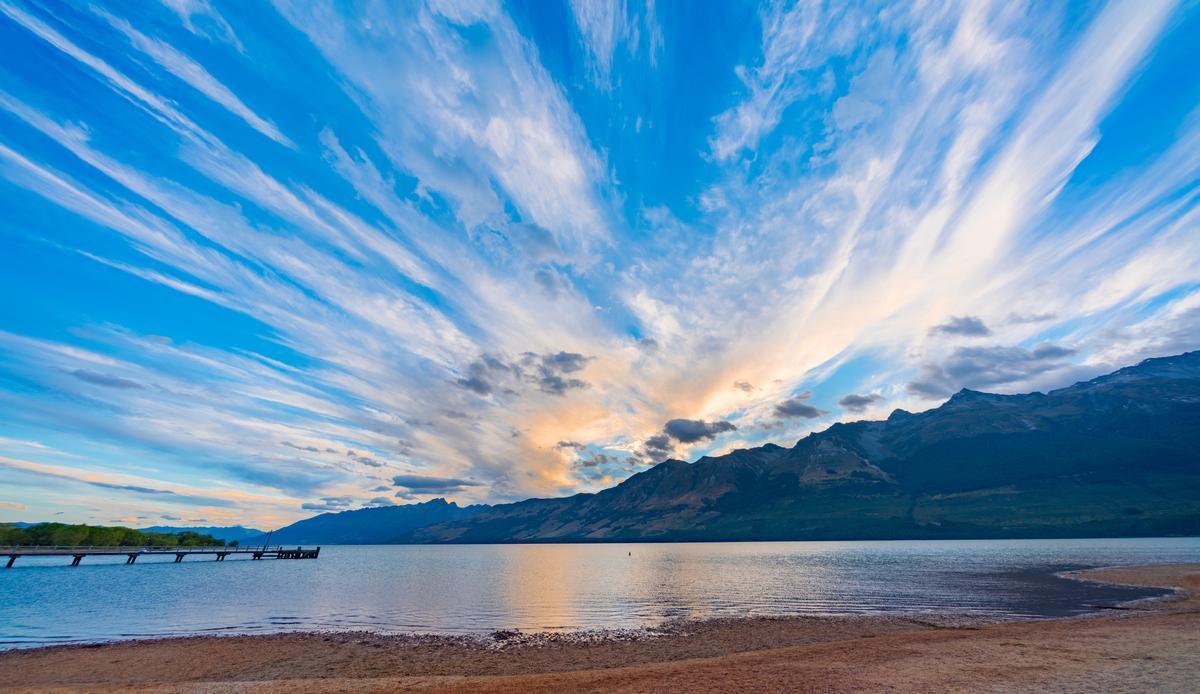
Queenstown & Glenorchy, New Zealand
The drive from Queenstown to Glenorchy is one of the most beautiful I’ve ever taken, a perfect romantic backdrop on our anniversary.
We actually spent two months based in various vacation rentals here so it was no surprise it coincided with our anniversary. It's got a bit of mystery and magic and I think that's why the Lord of the Rings was filmed here.
First, we took the Skyline gondola up for a view from Queenstown. Next, we drove to our Airbnb in Glenorchy and held hands on the Glenorchy jetty at dusk while watching an incredible sunset.
One negative for me was the landing at Queenstown airport was very rough. The airport is between two mountain peaks and even in late spring (December), the ride during the last 15 minutes was extremely bumpy, probably among my top three scariest landings! Despite this, Queenstown is one of my top recommendations for a unique couples' aniversary vacation idea.
What I loved best:
Scenic drive around the lake was my favorite!
For me, Queenstown is one of the best spots for a cool Anniversary trip. It's romantic, secluded, and a favorite escape I can’t wait to return to!
I loved that we could start our morning with coffee on Queenstown’s lakefront, then set out along the shoreline as the road gently follows the water toward the mountains.

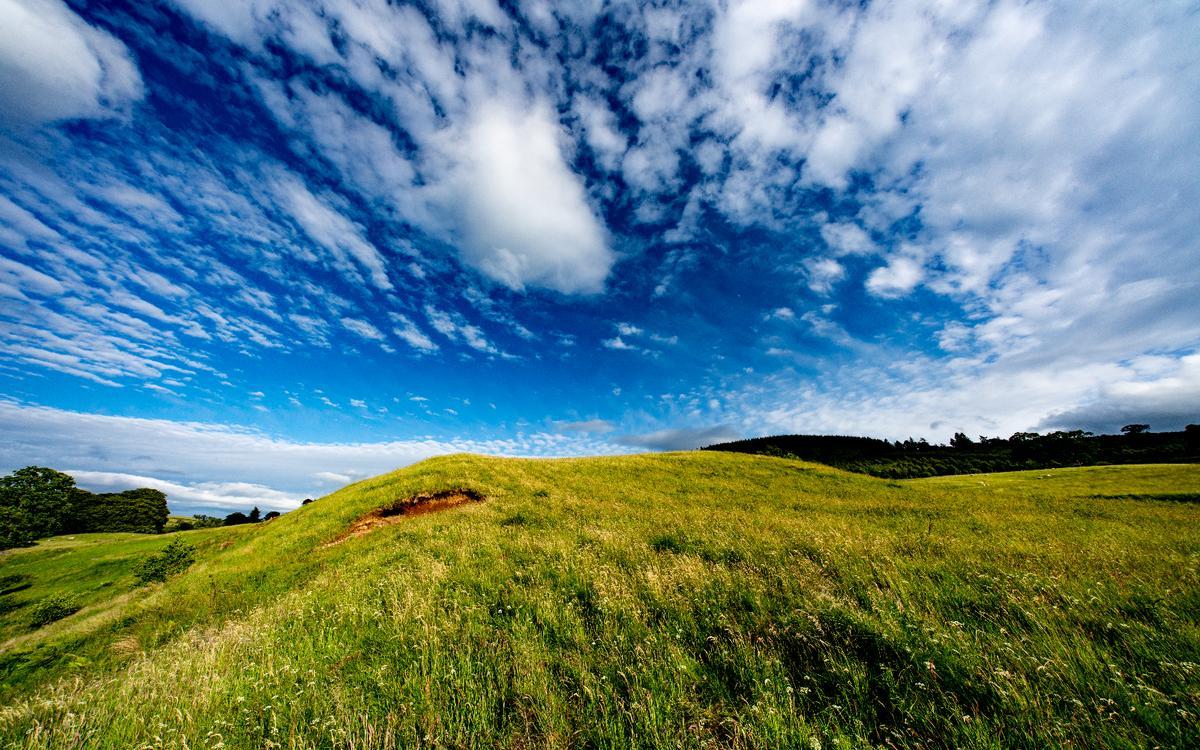
Scottish Vacation
Ready for a anniversary vacation where the journey itself is the highlight? Welcome to Scotland, where dramatic landscapes, misty lochs, and timeless traditions set the scene for an unforgettable vacation. My favorite month to visit is June! Last summer, we spent three weeks in Scotland in a romantic cottage in Crieff.
First off, I love the way in June, the Highlands and islands come alive with long days of golden light, and wildflowers in bloom. In addition, walking here feels like stepping into a living storybook, with ancient castles, cozy villages, and sweeping mountain views guiding our journey.
With Country Walkers, over several days, you’ll follow trails that wind through heather-clad hills, along rugged coastlines, and beside tranquil lochs.
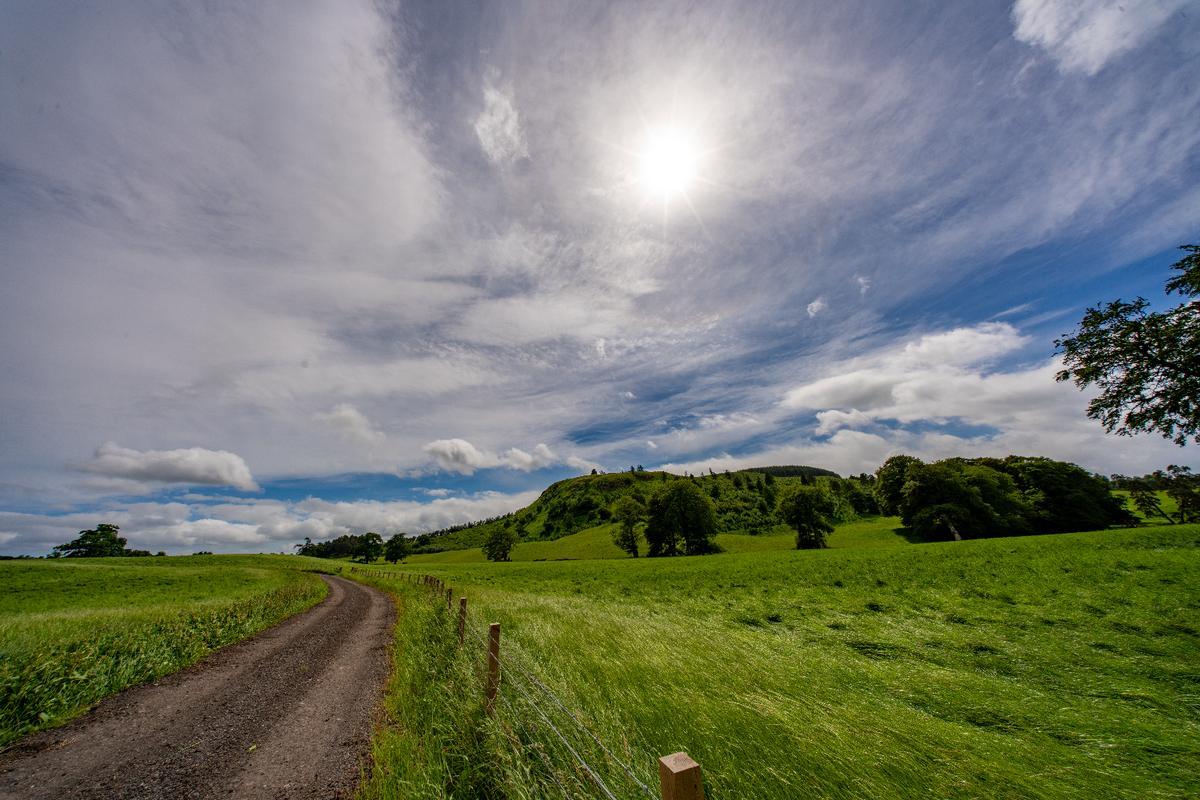
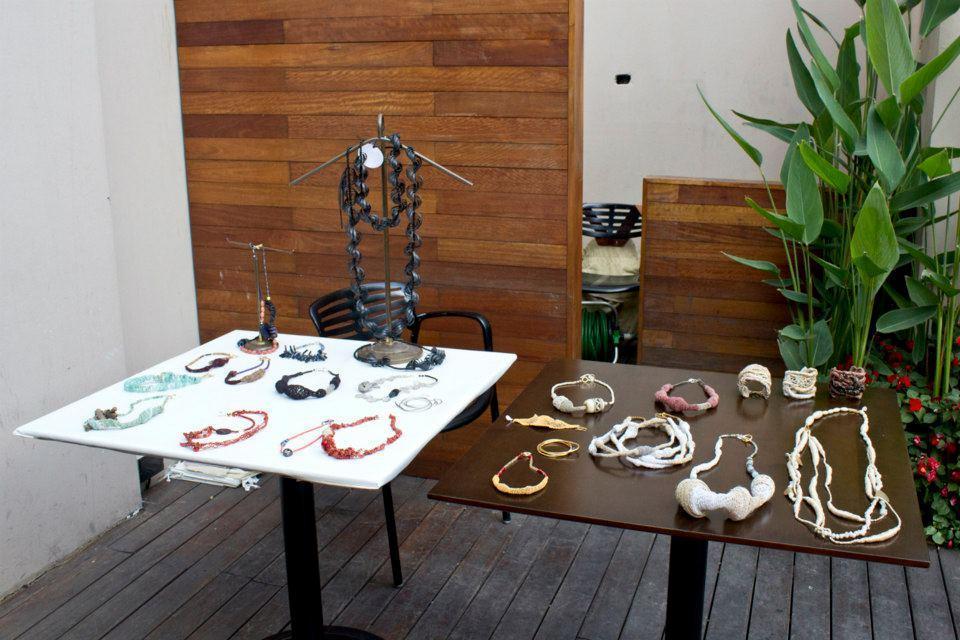
Shop Hop, Buenos Aires
This is one of our favorite things to do in Buenos Aires because it makes the city’s style scene feel completely accessible! Shop Hop takes you through the best independent designers, hidden ateliers, and concept stores. Basically, you'll get to shop at places you’d never find on your own—and the whole experience is relaxed and beautifully paced.
What I loved best:
We sipped tea, bags at our feet, feeling like locals for an afternoon was my favorite highlight.
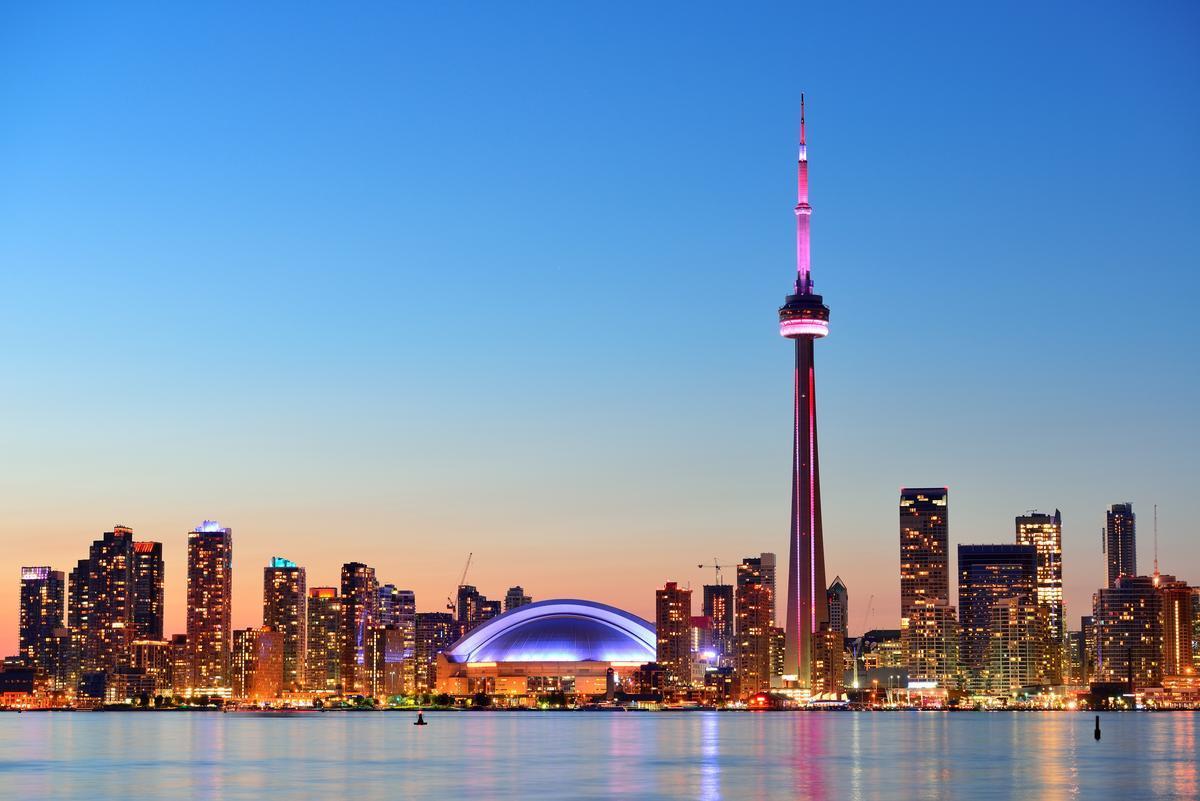
Toronto, Ontario
Toronto is one of my favorite cities to visit for romance in North America. Chris and I flew into Pearson Airport and spent four lively days in a Corner guest room with a King bed at the 4-star Anndore House which was spacious and elegant.
First, we browsed vintage shops and street art in Kensington Market, then stopped for al fresco lunch at Italian hotspot Terroni on Queen Street West.
After lunch, we strolled along the Martin Goodman Trail.
In the afternoon, I booked a 60-minute massage at Elmwood Spa which offers four floors of services and treatments, especially water therapy treatments.
Dinner Auberge du Pommier was incredible and romantic - I had delicious Atlantic salmon with celeriac rémoulade & kale.
My favorite highlight:
One of the absolute best ways I’ve explored Toronto is through Tasty Tours Toronto. I joined one of their guided food adventures, and it was pure joy from start to finish. We walked through neighborhoods like Kensington Market and Chinatown, sampling everything from decadent chocolates to unusual international treats. In fact, since Toronto is so spread out, I recommend taking a tour with a local guide if this is your first time visiting.
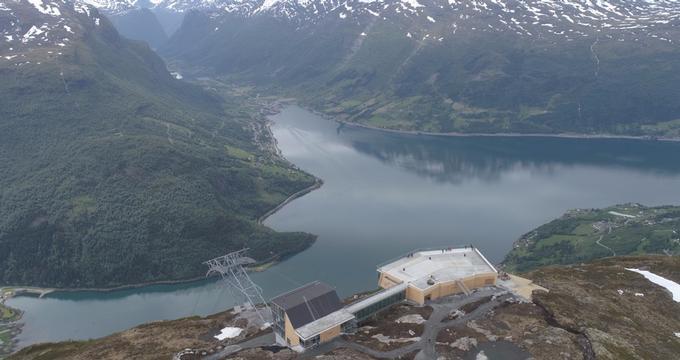
Loen Skylift, Norway
This is one of my favorite places to visit because it combines jaw-dropping scenery with almost zero effort. It was such a cool adventure for my anniversary trip with my husband. We loved gliding from the edge of the fjord straight up into the mountains in just a few minutes! Then, suddenly we were standing in crisp alpine air with sweeping views of emerald water and snow-dusted peaks. Loen Skylift's incredibly easy to get to, yet the reward feels like something that should require hours of hiking.
We based ourselves in Hotel Alexandra in Loen for three romantic days and took Loen Skylift up two morning in a row. It truly was a spectacular way to celebrate our anniversary.
What I loved best:
Lunch at Hoven Restaurant, right at the summit really stood out! I had stew with root vegetables and cloudberry compote. The stew was rich and savory, the meat tender, the broth filled with thyme and something smoky. It smelled like pine, pepper, and the cold. We ate slowly, every bite a warm answer to the wind outside.
Best Anniversary Mindfulness Retreats
Sometimes the stress of the daily schedule just overwhelms and in those times I find the best thing to do is to slow down in a natural setting. These are some of my favorite places for anniversary stays that have given me just that.
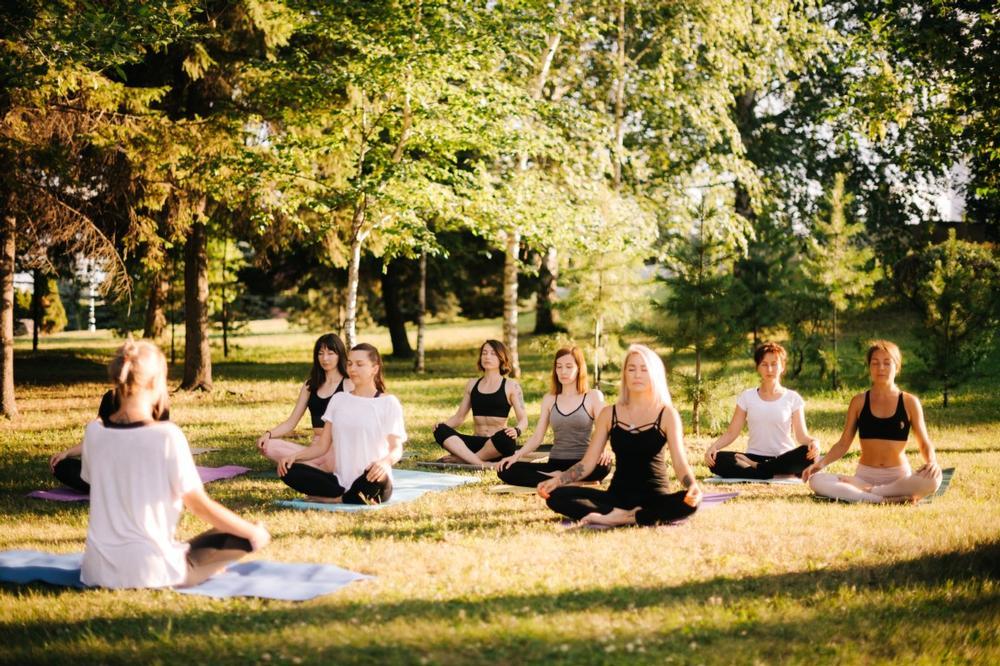
Skyterra Wellness Retreat, Pisgah Forest, NC
This retreat left us completely recharged! Located in the lush Blue Ridge Mountains, this place is surrounded by towering trees, fresh mountain air, and peaceful streams.
Our private cottage for three days was thoughtfully designed for rest and renewal, with modern rustic touches. For me, waking up to the quiet of the forest each morning was nothing short of magical.
What made my stay stand out was the holistic approach to wellness. Our days were filled with mindful movement classes, personalized fitness sessions, guided hikes through Pisgah National Forest, and nourishing, chef-prepared meals crafted with health in mind.
What I loved best:
My favorite highlight was the peaceful morning yoga on the outdoor deck.

Franciscan Spirituality Center, Milwaukee
This is one of my favorite places to visit because it offers a gentle, grounded kind of peace that’s hard to find in the middle of Milwaukee.
Our room for two days was modest yet comfortable, with clean lines, soft lighting, designed for rest and reflection.
In the morning we joined creative workshops, had lunch, then joined a meditation, followed by a walk in the gardens.
What I loved best:
Strolling in the gardens was peaceful, romantic and my personal highlight.
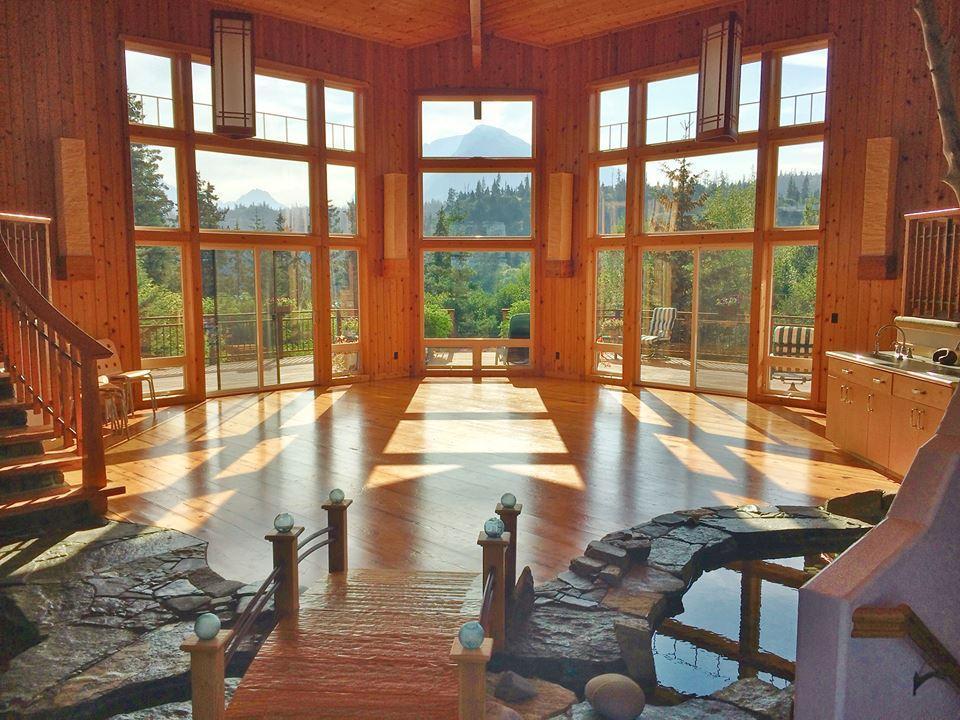
Stillpoint Lodge, Alaska
For us, this Alaskan retreat felt like a hidden gem at the edge of the world, and one of the most serene places I've ever been to! We arrived by boat (you can also take the seaplane). The lodge is locatedbin Halibut Cove, surrounded by the waters of Kachemak Bay!
Our private cedar chalet for two days combined rustic charm with luxurious touches, including a cozy fireplace, natural wood finishes, and windows that framed breathtaking views of the water and mountains.
What I loved most was how each day balanced adventure with mindfulness. In the mornings, we enjoyed yoga, meditation. Then we went on guided hikes and wildlife excursions. We returned to the lodge for nourishing meals crafted from locally sourced ingredients
What I loved best:
For me, Stillpoint Lodge is one of the best anniversary ideas.
My favorite highlight was ending the day with meditation by the fire.
Booking Checklist
1. Book Your Flight - I use Expedia because I like their mobile app with my itinerary. They've helped me re-book flights on many occasions. Once you reach their Gold tier, support is especially good.
2. Book Your Hotel - I use Booking.com or Expedia, depending on my destination.
3. Book Your Rental Car - I use Expedia.
4. Book your tours on Viator or Get Your Guide.
5. If you are planning to visit more than three national parks in the next 12 months, we've found that buying the America the Beautiful Pass is cost effective.
